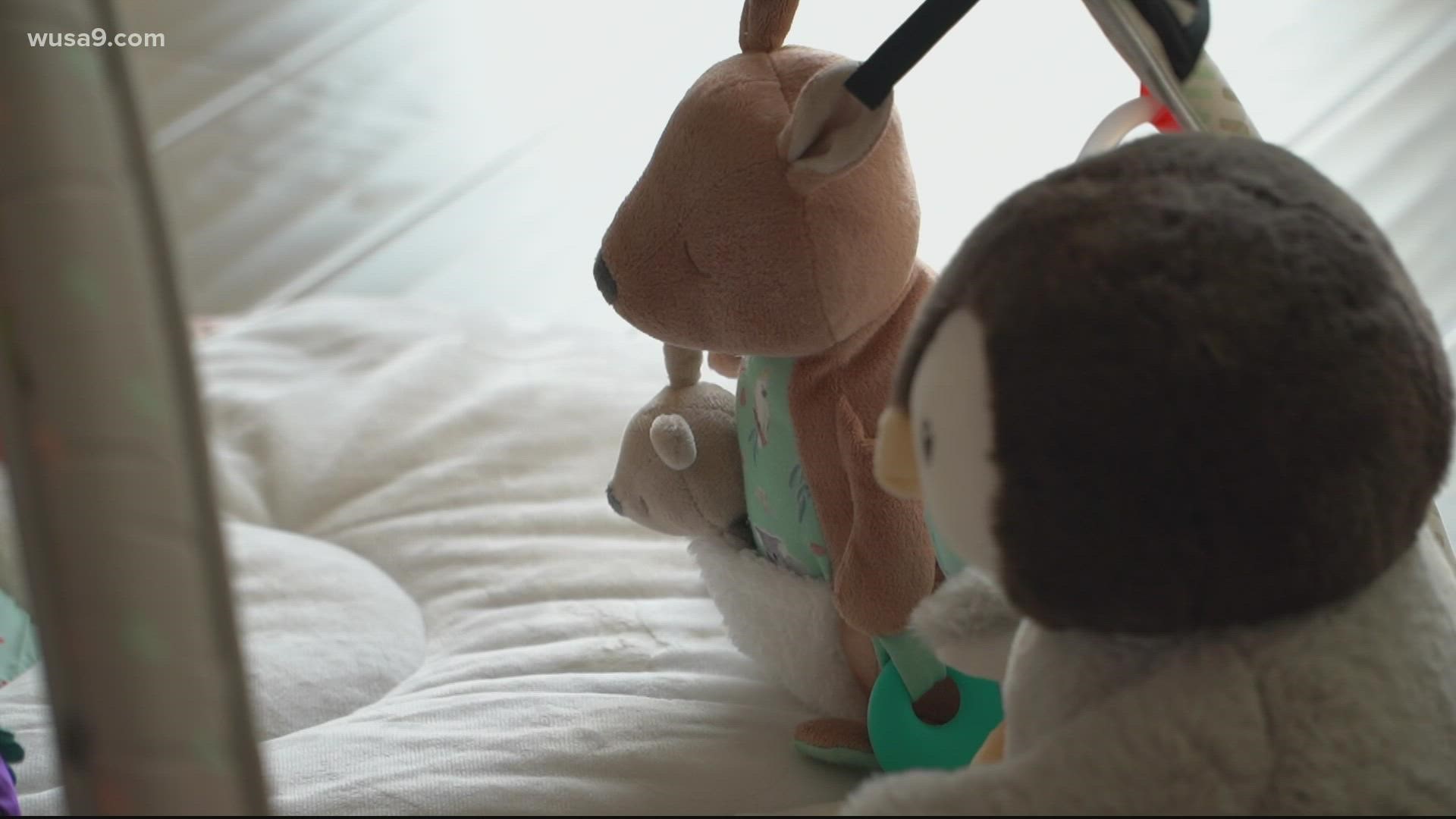WASHINGTON — If 10% to 20% of known pregnancies end in miscarriage, according to the Mayo Clinic, you probably know someone who has suffered through this. WUSA9 sat down with a group of women for a conversation that is difficult for a lot of people, but the women who have experienced this kind of loss hope those reading can take something from it.
On a cold day, four women came together. The dark clouds match the gloom of the topic, a topic that can bond strangers.
“There's an instant understanding when you meet someone who's experienced a pregnancy loss or an infant loss and it's almost like you've known each other longer than you have,” Grace Burberry-Martin, who has experienced miscarriage and pregnancy loss multiple times.
The women have all suffered losses of the most devastating kind.
“Inexplicably and very suddenly I went into preterm labor,” Grace said. “Even though my husband and I were able to make it to the hospital very quickly, by the time we reached the labor and delivery ward, I was too far along for the doctors there to stop my progress. So our son was born later that evening and unfortunately, he was not able to survive and my husband and I were devastated.”
“Everything is normal until it's not,” said Elaine de Leon Ahn, who has also suffered multiple losses. “I gave birth to our daughter Zoe when she was about 24/25 weeks old. She spent about 47 days in the NICU but passed away.”
Rockell Harvey-Gutierrez's story might sound familiar to many women.
“She kept scanning for a long time and I looked at her and I said ‘is everything ok,’” she recalled. “She kept scanning and I said, ‘is everything ok’ and you know tears started to fill her eyes and she said ‘there’s no heartbeat’ and when she said that everything just went, everything just went black.”
According to the Mayo Clinic, 10% to 20% of known pregnancies end in miscarriage.
“The grief that you have when you've lost a very much wished for baby is what we call a prospective grief and that is you're grieving over the hopes and wishes and dreams for the future,” Sharon Covington, Director of Psychological Support Services at Shady Grove Fertility, said. “It's so much harder to grieve those than in situations where we may have lost a parent or a friend. Those are what we call retrospective grief and we have real memories and experiences that we can share with others, but when you lose a wished for baby, no matter how early in pregnancy it is, it is very hard to grieve in the way society has kind of setup for us to do.”
The conversations you have after someone tells you this news can help and hurt in unexpected ways.
We asked Elaine, Rockell and Grace what were some of the things said to them that made the situation even worse.
“I think because so many people experience this, but we don't talk about it openly, right, a lot of people don't know what to do in situations like this,” Elaine said.
“I found that typically any statement that starts with 'at least' is probably not going to be very comforting,” Grace said.
“They said this is not something that should make you feel sad,” Elaine recalled. “You have other opportunities to have children. I think people want to be comforting. They want to say the right thing. They want to comfort you, but it’s hard to really think about what is being lost right. Children can’t be replaced.”
We also asked what helped during this time.
“They said that you know it’s not my fault because I was blaming myself you know,” Rockell said. “I was working a lot of hours so I felt like that might have contributed. I felt like really ashamed, and they really reassured me that you know it’s nothing you did.”
“When our friends and family would offer something rather than asking us what we needed,” Grace remembered. “They’d say, ‘I’d love to bring you dinner would you please let me know if there’s a good time next week or the week after’ and that was really helpful because we didn’t have to think of something or think of a way that someone could be helpful to us.”
“Allow people to grieve however they want,” Rockell added. “I think that is so important for anyone going through this, grieve how you want.”
That grieving process can take time; it's never really over. So these women hope talking about their process here, can help others when they join the club no one wants to be in.
“Hopefully, by telling our story more publicly we can reach people like that who may not have the support network personally, but who can see us on camera and say, 'that story sounds like mine' or even if the circumstances are different, the loss of a child is devastating and hopefully this will help people feel less alone,” Grace said.
This isn't just about mothers -- fathers are impacted by these losses as well, and that's also often not discussed. There are resources available for them, too.

